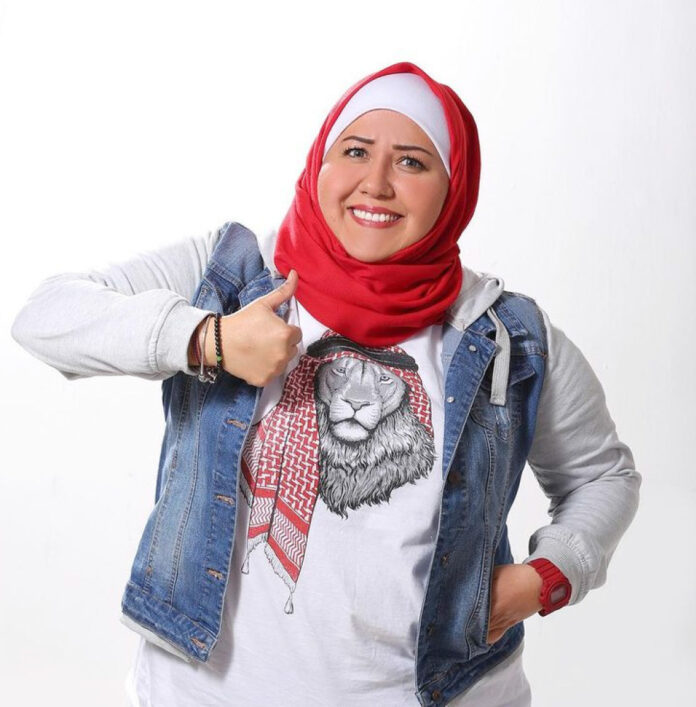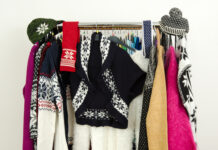By Rima Masri
What image comes to mind when you think of a comedian? Probably not an Arab woman donning a headscarf but this is the profile of our unlikely comedian this month.
Rawsan Hallak wears many hats, so-to-speak: She is a civil engineer by profession, an actress and a drama teacher, but perhaps she is most known as a stand-up comedian.
Hallak’s career in stand-up comedy took off almost a decade ago. She won a competition hosted by Kharabeesh, a Jordan-based company that produces Arabic-language animated cartoons, music videos and talk shows that generally tackle political issues in the Arab world. Her stand-up comedy performances became accessible to wider audiences through YouTube.
Before the pandemic, Hallak had made it to the international comedy scene. She was featured on Netflix’s “Comedians of the World”, among 50 comedians from 13 regions worldwide and filmed in eight languages.
The publicity she garnered led to her participation in the Just For Laughs Comedy Festival in Montreal. “I met comedians from all over the world and got to know their cultures through their jokes and discovered that regardless of one’s nationality or race, our jokes are very similar,” she points out. “In the end, we are all human.”
Her most recent endeavour was joining this year’s Edinburgh Festival Fringe (the world’s largest arts festival) in Scotland, which welcomed female comedians of Arab heritage.
From civil engineering to drama
Civil engineer turned marketer turned drama teacher – Hallak’s path is certainly unconventional. Although she didn’t have the formal credentials, a local school hired her as a drama teacher to 500 students in the first to fifth grades, “believing in my capabilities and that I would grow into the role, which I did.”
Growing up, Hallak performed in many school performances, which is how she discovered her passion for theatre. She recalls her first role, playing the part of the demon. “It was supposed to be a serious role but the audience perceived it as comedy and they laughed a lot!” Their reaction and her being known among her friends as the jokester motivated her to pursue comedy.
Facing challenges with humour
With few female Arab comedians living in the Middle East, Hallak admits to needing to be “careful with my scripts and the topics I cover to ensure they’re suitable for the particular audience and their level of acceptance.” She uses colloquial phrases and words to reach her audience in a style that matches her values and principles, especially since she comes from a conservative family.
Her family are Hallak’s biggest fans, but the journey to acceptance was not smooth; “Once they (her family) saw that there was a message and a clear and beautiful goal in what I present, they began helping me, suggesting topics as well as underlying messages to cover,” the spirited comedian reveals.
Comedy as self-expression
Hallak’s biggest draw to comedy is the space it gives her to express herself in a socially acceptable setting. “Freedom of speech and comedy go hand-in-hand,” she explains. “You can say things through comedy that you can’t express otherwise.” In part, she finds herself in comedy because it allows her the freedom to discuss certain issues openly and create content that resonates with people. She focuses mainly on topics concerning women. “It is a wonderful thing to be able to say what you want,” she adds.
Hallak hopes to see more young people follow their passion and for more girls to grow up to be comedians. “I hope that more roles across all fields open up to women,” she shares.
Hallak concludes with her wish for parents to “recognise, value and guide their children in their passions and talents. God has given every person a talent; they just need to discover and hone it.”






